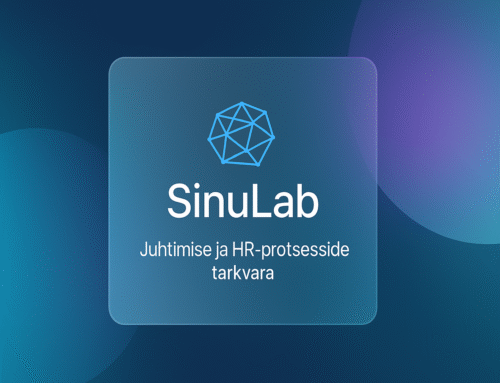What is Smart Work?
A significant portion of people aspire to engage in activities that bring out their potential and test their abilities while providing opportunities to strive, learn, and grow. Employers, on the other hand, expect people to deliver results with reasonable resources, profitably, and consistently.
In an organizational context, smart work means leveraging digital technologies, strategic planning, and thinking. It also involves creating an internally collaborative environment where goals and value creation are understood, feedback is given and received, and motivation and job satisfaction are maintained. This includes energy, engagement, joy in achieving results, and a sense of success. Smart work is essential for both the organization and its people.
Understanding whether and what value one creates as an Employee, and how consciously they can use their time, prompts leaders and employees to think about what we call smart working.
Often, it must be acknowledged that smart working is more about individual realization, which evolves over time and maturity and varies from person to person. Therefore, it can be said that smart working should be personally designed based on the environment in which a person works, the nature of their job and profile, and the results they wish to achieve.
It was somewhat challenging to find a unified definition of smart work while preparing this article. The modern definition of smart work is already quite broad and could be described as follows:
Smart work is an adaptive approach that leverages modern technology and strategic decision-making to optimize activities, enhance performance, increase the application of Employee potential and satisfaction, and enable the organization to grow. It primarily means focusing on high-value activities, using intelligent digital tools and processes, and fostering a culture of continuous improvement and innovation.
Therefore, we need both smart work, which is a general strategy for organizing work and developing work methods focusing on optimal resource use and work outcomes, and smart working, which focuses more on individual ways of working and work habits that help achieve better results and a sense of accomplishment.
What can Manager do?
A Manager can significantly influence and guide smart working at an individual level. By influence and guidance, we don’t mean giving orders like “do it this way,” but rather fostering open collaboration, mutual understanding, effective communication and feedback, care, and helpfulness. Trust in mutual communication and relationships is undoubtedly a prerequisite for all of this. After all, the direct Manager is closest to what the Employee deals with on a daily basis.
Here are some key points that smart working might include and which both the Manager and Employees can focus on in their feedback and collaboration.
Important keywords: value-creating activities, performance-result relationships, shaping work habits and attitudes, consistency, goals and metrics, personal work pace, self-management and awareness, optimization of work processes.
- Understanding which work activities create the most value and deliver results
- Focusing on tasks that truly yield results (NB! long-term results and short-term visible results)
- Long-term (vision) and short-term (action plan for 3-6 months) views and setting personal goals accordingly. It’s important that all activities are connected to longer-term goals and vision.
- Adding and tracking metrics, monitoring performance
- Analyzing one’s activities and results (at least a weekly summary and analysis)
- Skills to identify and eliminate major distractions that hinder working and being in flow
- Addressing the habit of procrastination
- Completing tedious and administrative tasks as well, finding time and ways to perform them more efficiently, such as responding to emails, meetings, report preparation, etc.
- Planning daily tasks, for example, determining 3-5 main tasks each day that are important to complete and developing beneficial work habits
- Finding an appropriate work pace that doesn’t lead to burnout and helps maintain energy. For instance, 5 hours of intensive work followed by simpler tasks, or short relaxation breaks every couple of hours for 10-20 minutes.
- Adjusting the work environment, organizing the workspace, ensuring privacy and the ability to concentrate, etc.
- Focusing on solutions rather than endlessly analyzing problems
- Visualizing plans, activities, and performance. For example, using Kanban, Gantt charts, etc.
- Utilizing digital tools and automating where possible
- Delegating or eliminating tasks that are not related to your work and long-term goals
- Continuously optimizing work processes and enhancing activities.
Smart working is about creating a system for oneself that helps achieve better performance. We can conditionally call it work design at a personal level, which the leader can and should help guide.
Goal-oriented activities
Monitoring, measuring, and analyzing performance
Organizing operational activities
Using necessary technology for work
Flexible work
Self-management
Feel free to get in touch and let us know your needs. The first consultation is free for everyone.





Leave A Comment